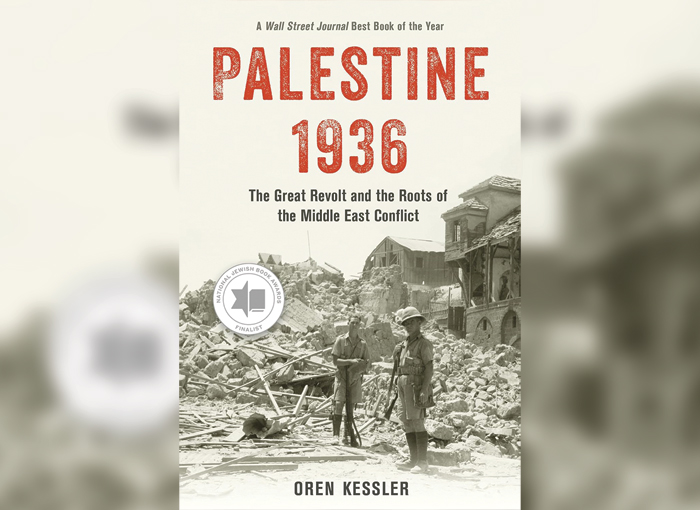Last Monday night after dinner, after the dishes were cleared, I sat in my dining room with Mark Rosenblum and asked him the question I’d long been meaning to ask: Why don’t you just give up?
In 1978, a group of former Israeli army officers and activists formed Shalom Achshav — Peace Now — to persuade their government that Israel could never have true security without negotiating a settlement with the Palestinians.
Mark, then a young Queens College professor, threw himself into organizing a stateside support system for Shalom Achshav.
In 1984, just after I moved back from two years in Israel and was looking to stay involved in the country’s future, Mark hired me to organize a Los Angeles office of Americans for Peace Now (APN).
He was tireless, driven and caring. He introduced me to his heroes — decorated warriors like Gen. Yehoshafat Harkabi, who called for direct negotiations with the Palestinians. When Mark escorted Harkabi to a Beverly Hills synagogue, local armchair warriors tried to shout the general down. Mark argued back, but he never shouted, never called names.
“What convinces people to listen to you,” he said, “is when you listen to them.”
The illogic of occupation, he was certain, would ultimately vindicate Peace Now.
I left activism for journalism — I still find it more fulfilling to convey differing stories and points of view than promote my own. Over the years, many others also left. Two intifadas, several bad-faith peace negotiations, the duplicitous Yasser Arafat, Israel’s relentless settlement expansion — in the face of all that, the Israeli left withered. Fighting for peace is still fighting, and the warriors grew tired, battle-scarred. Many, like Aaron David Miller, made public their disillusion: “Good riddance, ‘peace process,’ ” Miller wrote two years ago in the Los Angeles Times.
But Mark won’t quit.
He stepped down from running APN full time. But he still travels, speaks and raises money for the organization — 30 hours each week, if not the 80 he used to put in. He juggles Middle East peace with running the Center for Jewish Studies at Queens College and its Center for Ethnic Racial & Religious Understanding. He still looks tireless, shlepping into town in his loose dark suit, thick glasses, his hair somewhat thin and graying, a worn, paper-stuffed Nader-esque black satchel by his side.
“Why,” I asked, “don’t you just give up?”
Mark took a sip of the tea I’d made, then answered.
His mother, father and siblings had moved in 1997 to Kibbutz Hatzor, near Gaza.
“When the rockets hit,” he said, “you can feel the earth shaking.”
They’re still there. He stayed in Larchmont, N.Y.
Language was a large part of the reason, he said — revealing something I never knew. As a child, Mark suffered from such a traumatic stutter that he didn’t speak until the age of 8. The person who has given countless lectures and participated in as many debates on Israel and Palestine told me he has to concentrate hard just to get his words out right. The idea of mastering a new language, Hebrew, was too daunting.
So Mark focused his energies on Israel in a different way.
“I feel loyalty and connection, and that makes me feel like I can’t join the ‘exes,’ those who have given up. I’m still haunted by the fact that I feel close, but I’m doing advocacy from the outside,” he said.
Mark has seen four generations of peace activists, Palestinians and Israelis, come and go. But, he said, the voice he represents is more important than ever. The right has given up on the two-state solution; the left is giving up on Israel. A few weeks ago, he publicly debated the anti-Zionist Israeli Ilan Pappé in Seattle.
Mark explained to the crowd that Peace Now was first a general’s movement — people like Harkabi, who died in 1994, saw peace as the best way to achieve security.
“He was my mentor,” Mark said. “He was a security dove, a Machiavellian dove.”
Peace isn’t just morally right; it is in the security interests of all sides. If that’s the left, Mark said, it is, “in the center right” of the left.
His is also an idea that has, in a way, won. Ariel Sharon, Ehud Olmert and now Benjamin Netanyahu all eventually came around to seeing the two-state solution and negotiations with the Palestinians — ideas that once got Mark shouted down in synagogues — as the best way to secure Israel.
“The left makes the ideas,” Mark said. “The right makes the peace.”
So, I asked Mark, is the most recent peace process by Secretary of State John Kerry going to do the trick?
“Nine months isn’t serious,” Mark said. “There’s huge heavy lifting to be done in the midst of incredible turmoil.”
The way Mark sees it, there are two Palestines — Hamas and the Palestinian Authority. There are also two Israels — inside the 1967 borders and what he called a “runaway settler movement” outside the 1967 borders. The Palestinians will have to find a formula to accept Israel as a Jewish state. Netanyahu may be able to make peace, but his current government can’t. Perhaps Kerry can establish enough incremental agreements to construct larger compromises — but that’s not an uphill battle, Mark said, “it’s up-mountain.”
In the meantime, Mark will keep pushing the cause.
“None of it’s impossible,” he said. “It’s just a bit fanciful.”
Rob Eshman is publisher and editor-in-chief of TRIBE Media Corp./Jewish Journal. E-mail him at robe@jewishjournal.com. You can follow him on Twitter @foodaism.























 More news and opinions than at a Shabbat dinner, right in your inbox.
More news and opinions than at a Shabbat dinner, right in your inbox.